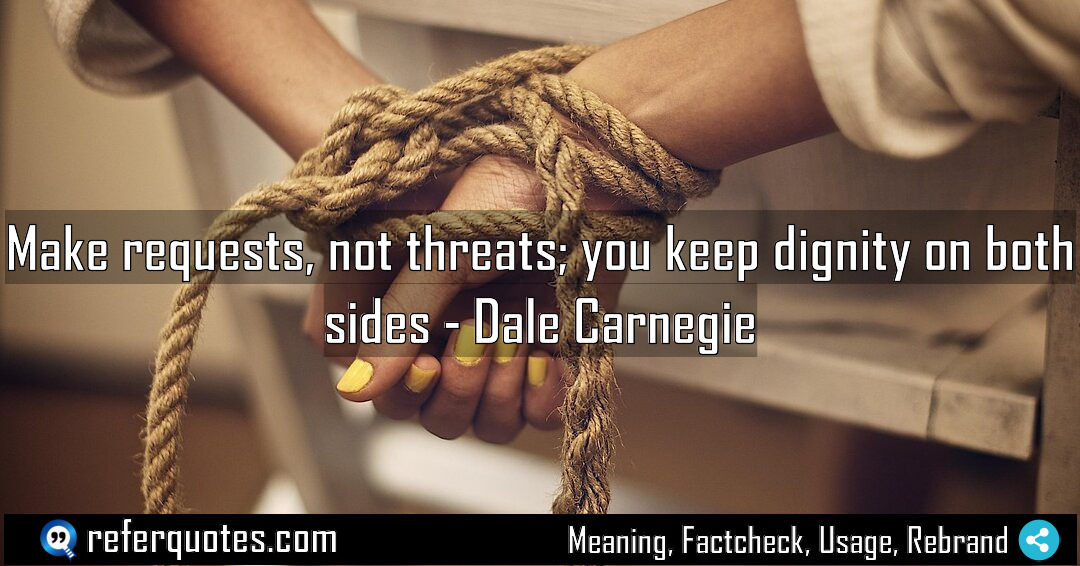You know, that idea to “Make requests, not threats” is one of those game-changers. It completely reframes how you approach conflict, turning potential battles into collaborative conversations. It’s about preserving everyone’s self-respect while still getting your point across.
Share Image Quote:Table of Contents
Meaning
At its heart, this quote is about choosing collaboration over coercion. It’s the fundamental shift from demanding what you want to inviting someone to help you get it.
Explanation
Let me break this down for you. A threat, right, it’s all about power. It says, “Do this, or else.” It immediately puts the other person on the defensive, backs them into a corner. Their ego kicks in, and suddenly it’s not about the issue anymore, it’s about winning. But a request? A request is an invitation. It says, “Here’s what I need, can we figure this out?” It acknowledges their autonomy. And that’s the magic. When people feel they have a choice, they’re infinitely more likely to cooperate willingly. You’re not just solving the immediate problem; you’re actually strengthening the relationship for the long haul. You both walk away with your dignity completely intact.
Quote Summary
| Context | Attributes |
|---|---|
| Original Language | English (3668) |
| Category | Business (233) |
| Topics | dignity (5), requests (3) |
| Literary Style | minimalist (442) |
| Emotion / Mood | determined (116) |
| Overall Quote Score | 59 (25) |
Origin & Factcheck
This wisdom comes straight from the Dale Carnegie Training organization, published in their 2009 book, “The 5 Essential People Skills.” While the core philosophy is pure Carnegie—think “How to Win Friends and Influence People”—this specific phrasing is from the modern institutional body that carries on his work, not a direct quote from Dale Carnegie himself from the 1930s.
Attribution Summary
| Context | Attributes |
|---|---|
| Author | Dale Carnegie (408) |
| Source Type | Book (4032) |
| Source/Book Name | The 5 Essential People Skills: How to Assert Yourself, Listen to Others, and Resolve Conflicts (71) |
| Origin Timeperiod | 21st Century (1892) |
| Original Language | English (3668) |
| Authenticity | Verified (4032) |
Author Bio
Dale Carnegie(1888), an American writer received worldwide recognition for his influential books on relationship, leadership, and public speaking. His books and courses focus on human relations, and self confidence as the foundation for success. Among his timeless classics, the Dale Carnegie book list includes How to Win Friends and Influence People is the most influential which inspires millions even today for professional growth.
Official Website |Facebook | X | Instagram | YouTube |
Where is this quotation located?
| Quotation | Make requests, not threats; you keep dignity on both sides |
| Book Details | Publication Year/Date: 2008 ISBN/Unique Identifier: 9781416595489 (ISBN-13), 1416595487 (ISBN-10) Last edition. Number of pages: Common reprints ~256 pages |
| Where is it? | Chapter 24 Positive Power, Unverified – Edition 2008, page range ~285–296 |
